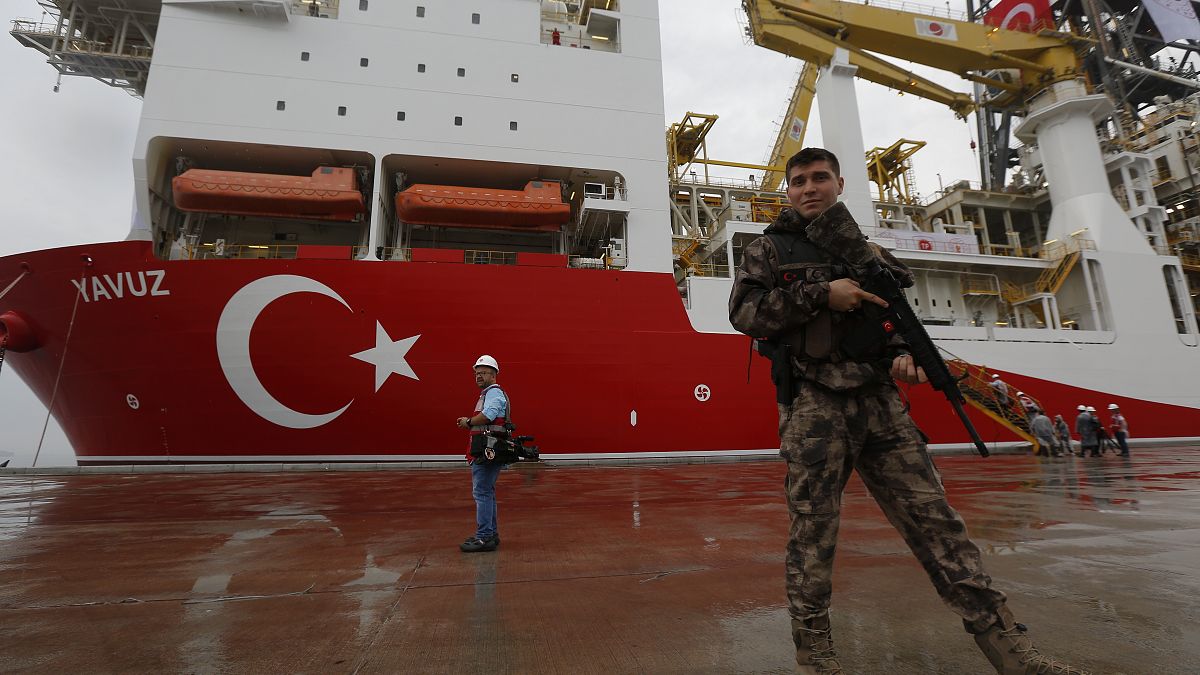Greece accuses Turkey of resorting to "gunboat diplomacy" near Cyprus, but analysts say the EU must recognise the West is no longer Ankara's only foreign policy partner
Turkey was the main topic on the agenda as the EU's foreign policy chief Josep Borrell arrived in Cyprus for talks on Thursday.
Tensions have been rising in the eastern Mediterranean since last year because of differences over competing efforts to drill for gas.
The Cypriot government says Turkish ships have been drilling and conducting seismic surveys in waters south of the island that are within its exclusive rights.
But Turkey says that position ignores the claim of Turkish Cypriots to the island's energy resources. It has sent its navy to protect its drill ships.
Borrell's visit to Nicosia, the day after a trip to Greece, comes as the EU considers its policy on Turkey, which is officially still a candidate for EU membership.
Membership talks have been in a stalemate for several years and this reflects the dysfunctional state of Turkey-EU relations, according to Dr Ilke Toygür, a European affairs analyst at the Elcano Royal Institute in Madrid.
"Right now, Turkey and the EU are very interconnected neighbours — economy, energy, migration, you name it — but the main framework to relate [with each other] is not working at the moment," she told Euronews.
Last year the EU reduced its financial assistance and halted high-level talks with Turkish officials as part of sanctions over the drilling activity off the Cypriot coast.
But Dr Toygür said Turkish foreign policy had changed in recent years and was now "multi-dimensional".
"Since its transition to the presidential system, [Turkey] has left behind the days when the west was its primary strategic ally," she said.
"This does not necessarily mean that it is drifting away from the EU [and] shifting towards another actor, but it means that it doesn't shy away from unilateral usage of force or deciding its own foreign policy moves unilaterally."
A demonstration of this changing approach was played out on Wednesday, when Greece's foreign minister Nikos Dendias used a meeting with Borrell to accuse Turkey of undermining security and stability in the eastern Mediterranean.
Dendias said it must "abstain from its illegal gunboat diplomacy".
But Turkey responded by saying Dendias's remarks were "entirely detached from reality".
A spokesman for the Turkish Foreign Ministry said Greece and Cyprus "should wake up from their dream that they can confine Turkey to its shores, and that this is consistent with international law."
